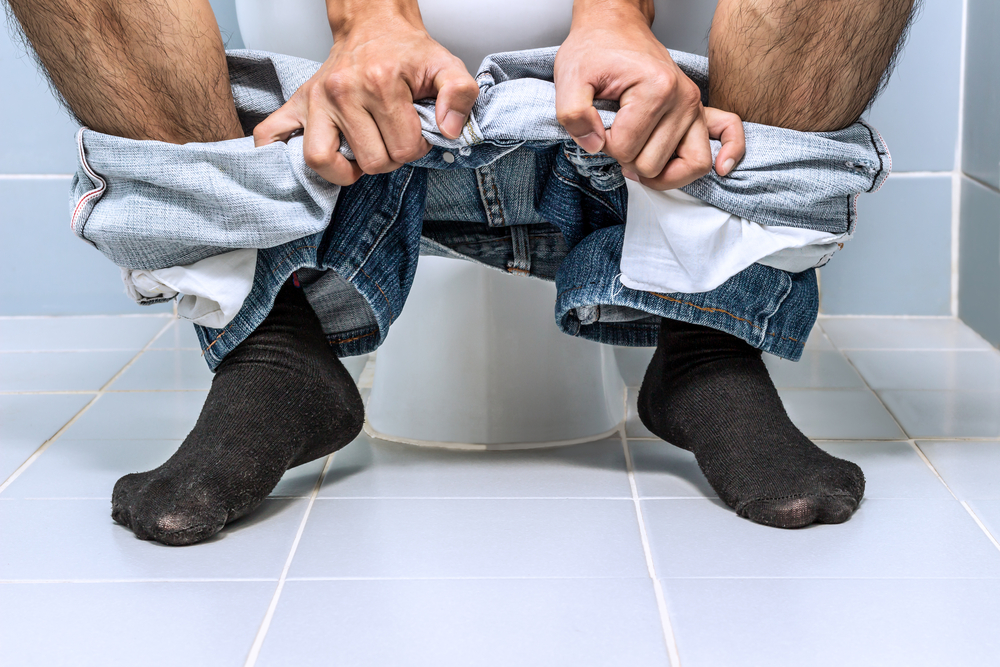Contents:
- Medical Video: 11-Year-Old Girl Suffers Third Degree Burns From Making Homemade Slime
- What is the function of mucus in the body?
- When is fecal mucus considered abnormal?
- Causes of slimy bowel movements
- 1. Ulcerative colitis
- 2. Irritable Bowel Syndrome (IBS)
- 3. Crohn's disease
- 4. Anal abscess or anal fistula
- 5. Food allergies
- 6. Bacterial infections
- 7. Cystic fibrosis
- How do doctors diagnose mucus defecation?
- Care and treatment for mucus defecation
Medical Video: 11-Year-Old Girl Suffers Third Degree Burns From Making Homemade Slime
Mucus is a substance produced by the body that can affect the body's work. However, some people might wonder what if the bowel is slimy? Does this happen normally? Here's the review.
What is the function of mucus in the body?
Mucus is produced by tissue to coat and protect certain organs such as the mouth, nose, sinuses, throat, lungs, and intestines. Mucus functions to reduce damage to certain organs caused by bacteria, viruses, and fungi. Its slick and sticky texture can be a trap for foreign particles that accidentally enter the body.
In the intestine, mucus functions to protect the lining of the intestine and smooth the surface. In addition, mucus can protect the intestines from stomach acid or other fluids that can irritate.
Healthy mucus is clear and thin. Sometimes also white and yellowish. However, several factors such as illness, diet, and also environmental factors can affect the texture, amount, and color of mucus.
When is fecal mucus considered abnormal?
Defecation or slimy bowel is basically normal. However, large amounts of mucus seen in feces can be a sign of a problem. This condition cannot be summed up simply that this marks a serious health problem. Well, if its existence increases continuously you need to be vigilant and consult your doctor.
Mucus which indicates a serious health problem is also usually accompanied by other symptoms such as:
- The presence of blood or pus in the stool
- Stomach ache
- Abdominal cramps
- So more often or less frequently defecating
Therefore, even if it seems disgusting, you need to be a little more sensitive to the signals the body gives through the presence of mucus in the stool.
Causes of slimy bowel movements
Excess mucus in the stool indicates several health problems. It could be that you have a problem with the digestive system. According to the World Journal of Gastroenterology, inflammation of the digestive tract will usually make the production of mucus in excess stool. In addition, several other health problems can also be causes of slimy bowel movements, namely:
1. Ulcerative colitis
This disease signifies chronic inflammation of the mucous membranes in the large intestine and rectum. Usually the wall of the large intestine will be injured, slimy, bleeding, until suppurating. If too much mucus is produced, it's likely that mucus will come along with feces when released.
2. Irritable Bowel Syndrome (IBS)
Irritable Bowel Syndrome (IBS) is a common digestive disease that affects the work of the large intestine. In IBS, muscle contractions that occur when food passes through the large intestine are fairly abnormal. Sometimes, if too many contractions can cause diarrhea, but if too little it causes constipation. Irregular or intermittent muscle contractions usually cause pain.
In people with IBS mucus is often overproduced by the large intestine and released through feces. Studies show that men with IBS tend to have more faecal mucus compared to women who experience IBS. Mucus will also be seen more when you experience diarrhea due to IBS.
3. Crohn's disease
Crohn's disease is a chronic inflammatory bowel disease. Inflammation can affect every part of the digestive system, from the mouth to the back, but most often occurs in the last part, namely in the small intestine (ileum) or large intestine (colon). Usually, people with this disease will experience painful abdominal pain and mucous or bloody bowel movements.
4. Anal abscess or anal fistula
Anal abscess is a disease caused by infection of the anal gland which causes pus to form around the anus. This condition often occurs in people with Crohn's disease, especially in the perineum area (in men located between the scrotum and anus, in women located between the anus and vagina).
While the anal fistula is an abnormal relationship between the lining on the inside of the anal canal (the back) and the skin near the anus. This condition is caused by a collection of pus trapped in the anal canal. Both of these diseases can make mucous mucus.
5. Food allergies
If you have certain food allergies such as nuts, lactose, gluten, and other foods, it is very possible for you to experience slimy bowel movements. This is because certain foods cause discomfort in the digestive system which can cause bloating, diarrhea, rash, and constipation. As a result, muscle contraction in the intestine is unavoidable.
6. Bacterial infections
Bacterial infections are usually caused by bacteria such as Campylobacter, Salmonella, Shigella, and Yersinia. These bacteria are often the cause of food poisoning and other infections. Symptoms are diarrhea, cramps, vomiting, nausea, and fever. Because of this contraction, the mucus in the intestine can come out when you are defecating.
7. Cystic fibrosis
Cystic fibrosis is a genetic disorder that can cause excessive production of mucus in the body. This life-threatening condition most often attacks the lungs. However, some cases indicate this disease can also attack the digestive tract. In this case, mucus can block the hole, or the ducts in your pancreas (internal organs). This blockage prevents the enzyme from reaching your intestine.
As a result, your intestines cannot fully absorb fat and protein. This can cause prolonged, foul-smelling, oily and greasy diarrhea.
How do doctors diagnose mucus defecation?
To diagnose excess mucus in the stool, the doctor will usually start with a physical examination and blood test. The results of this test will be a reference to see the main problems that cause mucus defecation.
If the results of the physical examination are not and the blood is not strong enough, the doctor will usually do a series of supporting tests such as:
- Test faecal culture (taking faecal samples)
- Urine test
- Colonoscopy
- Endoscopy
- X-ray, pelvic MRI, or CT scan
- Sweat electrolyte test
Care and treatment for mucus defecation
The results of the examination that has been carried out will be used as a reference in providing the right treatment. If you have a certain disease, your doctor will do the appropriate treatment for the disease that causes mucus.
Here are some recommended lifestyle changes to overcome this condition, namely:
- Increase fluid intake
- Eating foods or supplements that contain probiotics
- Avoid sour and spicy foods
- Eating foods that are rich in fiber
For this reason, from now on you need to grow sensitivity to the body by not ignoring the signals given by the body. For example, the condition of your stool when you defecate.













